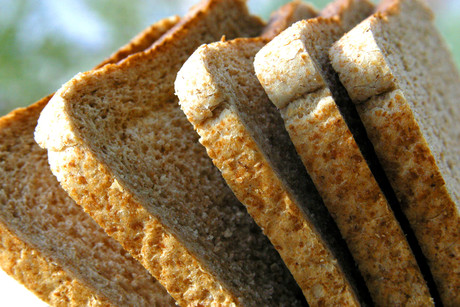The true cost of a loaf of bread

Every 800 g loaf of wholegrain bread manufactured in the UK produces the equivalent of 0.589 kg of carbon dioxide, according to scientists who followed the manufacture of bread along the supply chain.
An analysis of the environmental impact of the steps involved in producing a loaf of bread, from growing the wheat to its delivery to the consumer, has been presented in a paper published in Nature Plants. The study reveals that over half of the environmental impact of this production process comes from cultivating the wheat used to make the bread loaf, with over 40% attributable to the use of ammonium nitrate fertiliser alone.
Peter Horton and colleagues from the University of Sheffield used a life-cycle assessment approach for a single wholegrain loaf of bread, looking at all aspects of its manufacture. They obtained direct data for almost all stages by collaborating with a commercial bread and flour producer and a large agronomy services provider. They then assessed six categories of environmental effects, including global warming potential, pollution of fresh water and production of toxins dangerous to human health.
The authors note that delivering high yields of high-protein bread wheat without using unsustainable amounts of fertiliser will be a significant challenge for the 21st century. However, as the environmental impact of fertiliser use is not costed within the system, there are currently no effective incentives to use it sustainably.
Fast detection of food contamination using enhanced AI tool
A deep learning-based model has been developed to detect contaminants within three hours in foods...
Abattoir safety program in WA raises more awareness
Usage of knives and guarding of machinery were some of the key areas of focus in a recent...
Antimicrobial resistance in Aussie raw retail meats remains low, FSANZ survey finds
FSANZ has released its findings from a national survey of antimicrobial resistance in more than...











